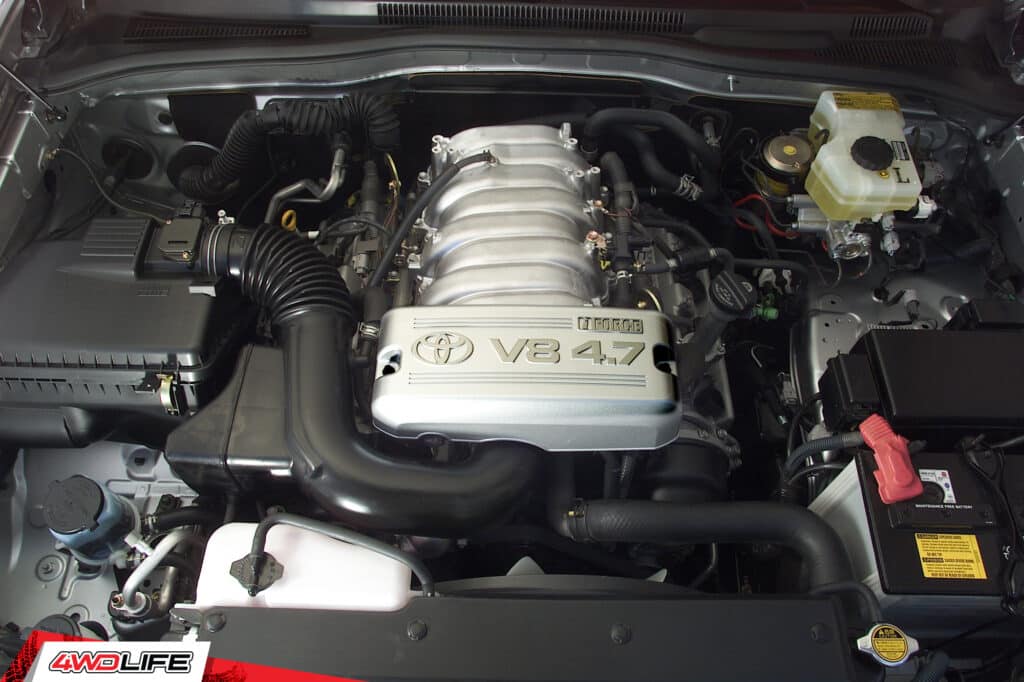
First introduced in 1984, the Toyota 4Runner is still in production today. The 4Runner has served many different purposes throughout its history, such as being a compact SUV and a luxury SUV. Most recently, the 4Runner currently falls into the Toyota lineup as a midsize SUV.
It has also been available in both two-wheel and four-wheel drive, making it a big hit among many consumer markets. Add in excellent cargo space and off-roading capabilities and you’re looking at a popular entry in Toyota’s long line of vehicles.
Toyota vehicles have a history of being very reliable, and the 4Runner is no exception. Among J.D. Power’s predicted reliability score, the current 4Runner has an average of 81%. This makes it one of the more reliable vehicles on the market, especially among the few SUVs in its class.
With some standout safety features, stellar fuel economy, Android Auto, Apple CarPlay, and an impressive towing capacity, it’s no wonder the current 4Runner is still going strong after all these years.
Toyota 4Runner Lifespan

Given the excellent resale value of used Toyota vehicles as seen in Kelley Blue Book estimates, it stands to reason that the 4Runner typically has a long lifespan. Let’s explore some key areas that will impact just how long your 4Runner will last.
Warranty
Standard: The original warranty for the 4Runner is 3 years/36,000 miles. There’s also a 5-year/60,000 powertrain warranty included with the basic coverage.
Rust: The 4Runner, like many other Toyotas, is susceptible to rust. But there is a 5-year/60,000-mile warranty that covers corrosion if you run into this rust issue.
Accessories: Included in Toyota’s standard warranty, all factory accessories are covered for 3 years or 36,000 miles.

Major Components
Engine: You can expect the Toyota 4Runner’s engine to last at least 200,000 miles with regular maintenance.
Transmission: The 4Runner’s transmission is built to last anywhere from 100,000 to 120,000 miles or more.
Suspensions: Toyota suspension systems are also very reliable and can last up to 100,000 miles or more. The average is easily over 50,000 miles.
Will a Toyota 4Runner Last 200,000 Miles?
Many factors will play into just how long your 4Runner will last. But with regular maintenance and care, it’s not unreasonable to expect your 4Runner to last 200,000 miles or more. So if you’re looking for a dependable and long-lasting SUV, the Toyota 4Runner is a great option.
Will a Toyota 4Runner Last 300,000 Miles?
Based on the average lifespan of Toyota vehicles and the excellent resale value of used 4Runners, it’s certainly possible that your 4Runner will last 300,000 miles or more with proper maintenance. In fact, many 4Runner owners report driving their SUV for well over 300,000 miles without any major issues.
Maintenance to Extend Toyota 4Runner Lifespan

Even though 4Runners rank highly in terms of reliability scores, there are still some maintenance tips you can follow to help extend the lifespan of your SUV.
Preventive Maintenance Service Intervals
Taking steps to prevent potential issues from arising in the first place is always the best policy. That’s why it’s important to stick to a regular maintenance schedule for your 4Runner.
Oil Change: One of the most important things you can do to extend the lifespan of your 4Runner (or any vehicle) is to change the oil regularly. Toyota recommends changing the oil every 5,000 miles.
Tune-up: Toyota recommends that you bring your 4Runner in for service every 5,000 miles or 6 months, whichever comes first. This will likely include an oil change, tire rotation, and tune-up.
Fluid Changes: Fluids like transmission fluid, brake fluid, and coolant need to be changed at regular intervals in order to keep your 4Runner running properly. For best results, change these fluids every 15,000 miles.
Lubrication: Lubricating your 4WD system is important for maintaining proper function and preventing premature wear. Toyota advises that you have the 4WD system lubricated about every 15,000 miles.
It’s important to note that different model years may require varying servicing approaches. For instance, some model years (like the fourth generation) don’t have locking rear differential unlike current ones that even have electronically-controlled ones.

Other Components that Need Replacement
Battery: You can expect your 4Runner’s battery to last around 4 or 5 years. Be sure to stay on top of battery maintenance to avoid any issues, like getting stranded due to a dead battery.
Brake Pads: Depending on your driving habits, you may need to replace your 4Runner’s brake pads every 30,000 to 50,000 miles.
Fuel Pump: The fuel pump is a key component of your 4Runner’s engine, and it typically needs to be replaced every 100,000 miles.
Timing Belt/Chain: Depending on the engine and model, a 4Runner may be equipped with either a timing belt or chain. The timing belt will likely need to be replaced every 100,000 miles but it’s good practice to replace the belt and water pump every 60,000 miles. A timing chain can last the lifespan of the engine.
Toyota 4Runner Common Problems

There’s little room to argue that Toyota 4Runners are some of the most reliable SUV models on the market. However, no vehicle is perfect, and there are a few common 4Runner problems that have been reported by owners.
The leading complaint from consumers is automatic transmission problems. This problem typically occurs in high-mileage 4Runners and can be expensive to fix. If you notice your SUV not shifting correctly or having trouble going into gear, it’s best to take it to a mechanic right away.
Another common Toyota 4Runner problem is a faulty EVAP system. This system is responsible for controlling the emission of fuel vapors, and if it’s not working properly, it can cause your 4Runner to fail an emissions test. You may also notice a fuel smell coming from your SUV if the EVAP system is not functioning correctly.
Finally, many 4Runner owners have also reported issues with the solenoid contacts becoming worn or corroded.
Unfortunately, some of these common problems can become major expenses if they’re not taken care of right away. So be on the lookout for these issues if you’re in the market for a used car, and be sure to have any potential issues checked out by a qualified mechanic before making a purchase.
Time-Tested Quality and Durability
The Toyota 4Runner is one of the most reliable SUVs on the market. It has a reputation for being tough and durable, and it’s been proven time and again in both real-world conditions and in rigorous testing.
If you can find a used 4Runner without the common problems discussed above, you’re likely to have a used SUV that will serve you well for many years to come.
